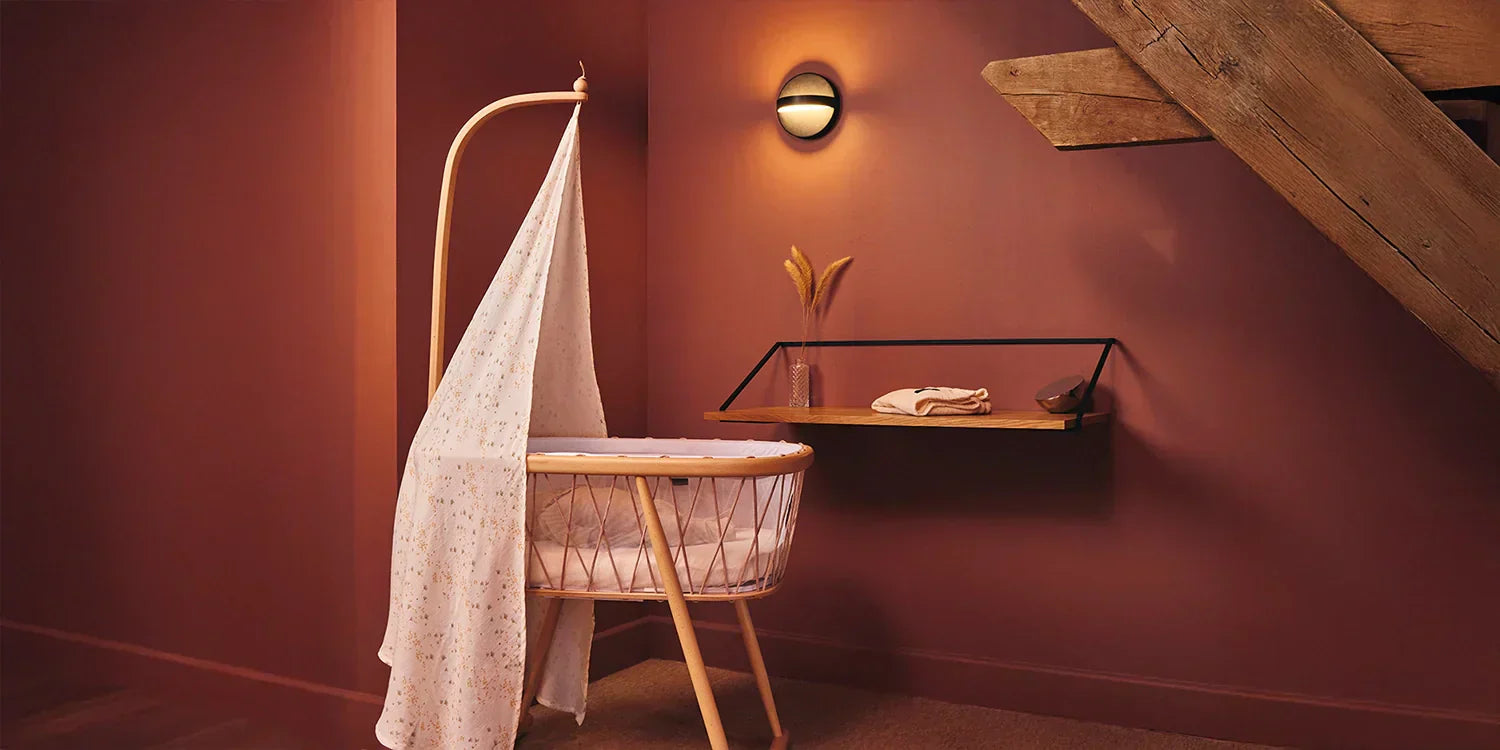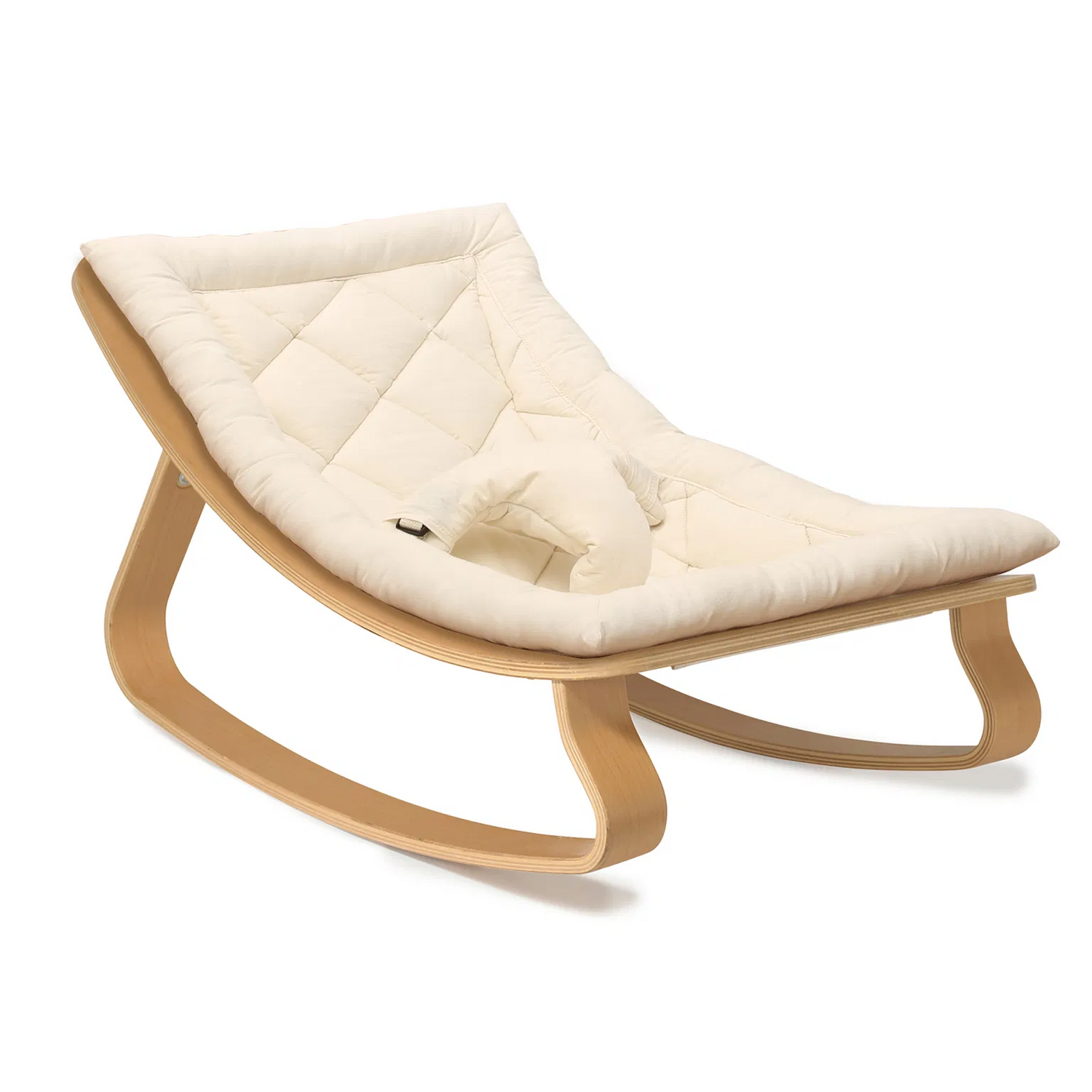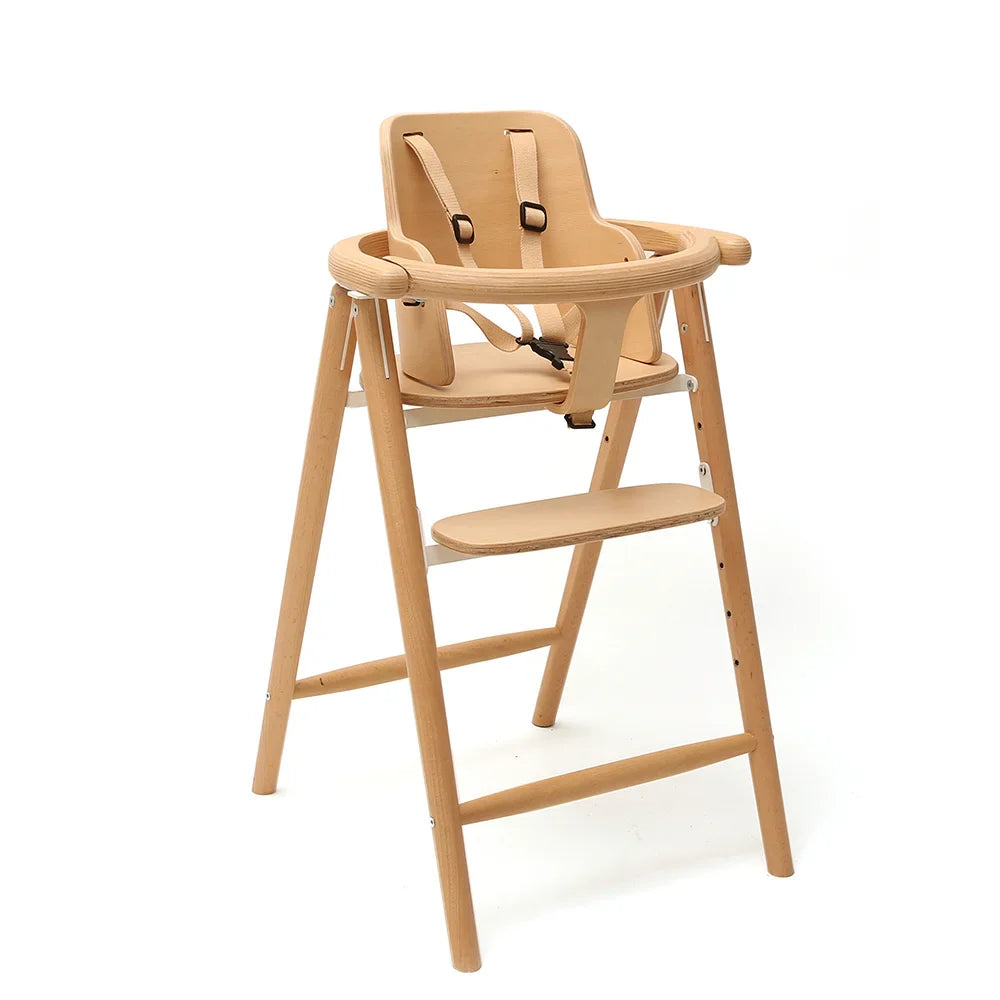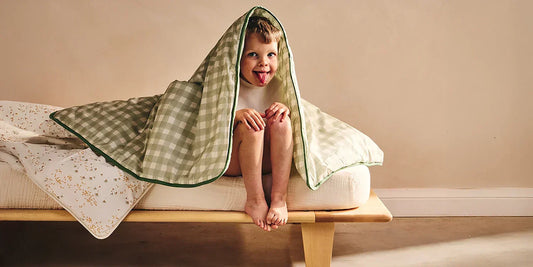Sleep: baby wakes up at night, what should I do?

What is a full night for a baby?
Contrary to what one might think, a full night for a toddler does not correspond to 7 or 8 hours of uninterrupted sleep, as for an adult. For an infant, a “full night” is defined by a duration of 5 to 6 hours of sleep in a row. It may seem short, but for a baby who, in its first months, wakes up very frequently to be fed or changed, these 5 to 6 hours are already a great accomplishment. The sleep rhythms of infants are in fact very different from those of adults. The cycles are shorter, around 50 minutes, with light sleep phases more frequent. So even if your baby starts sleeping a bit longer, he may wake up several times during the night.
When should you be worried?
While the majority of babies start sleeping better around 6 months, it's perfectly normal for there to be fluctuations. However, there are some signs that may cause parents to see a pediatrician or sleep specialist.
Here are a few things to keep in mind:
- If your baby is constantly waking up for no apparent reason (he is well-fed, has no fever, no illness, and has a calming environment).
- If, despite your best efforts to establish a routine or environment, your baby is unable to sleep longer at 9 or 12 months.
- If disturbed nights are accompanied by difficulty falling asleep, significant irritability, or behavioral disorders during the day.
In these cases, a pediatrician can help you identify the causes of frequent awakenings and offer appropriate solutions. However, it is essential not to feel guilty: each baby has its own rhythm, and it is not a reflection of your parenting skills. So repeat after us, “I am a good parent.”
Helping your baby sleep through the night is often a priority issue for young parents. The famous expression “sleeping through the night” is synonymous with an important milestone in a baby's development, but when that long-awaited moment is delayed or interrupted, it can become a cause for concern. What should I do if my baby wakes up at night? Let's decipher what “sleeping at night” really is, at what age can we hope for it, when to worry and above all, how to help your child sleep better.
At what age does a baby start sleeping?
Although there is no universal rule for the age at which a baby starts to make
At night, let's look at science and studies.
- Between 3 and 6 months: It is observed that half of babies are able to sleep for at least 5 to 6 consecutive hours.
- Starting at 6 months: A 2018 study published in Pediatrics showed that around 38% of babies sleep 8 hours in a row at night. This means that 57% of babies at this age still wake up at least once during the night.
-
From 12 months: it is estimated that 72% of babies sleep through the night... with variations. Factors such as the baby's diet, temperament, or even external events (teething, illness) can affect sleep. This therefore leaves 28% of babies who have difficulty sleeping all at once at night.
As you can see, full nights are not automatic for babies. It is important to remember that each child has their own pace of development. While some sleep for several hours at a time as early as 3 months, others may still wake up at night at 8 or 9 months, or even later. That does not mean there is a problem.

Practical tips to help baby fall asleep better
If your baby isn't getting through the night yet, a few simple adjustments can make a big difference in your baby's sleep. Here are some practical tips to improve your child's nights and, by extension, yours:
Create a bedtime routine
Babies, like older children, are sensitive to rituals. Repeat the same routine every night, preferably at the same time, with a fixed bedtime schedule. A soothing bath, a clean diaper, a short story, soft hugs, and a calm environment allow your baby to understand that bedtime is approaching. The more regular and repeated the routine is, the more your child will associate it with sleep.
Create an environment conducive to sleep
Choosing a baby bed is essential. It should be comfortable, age-appropriate for your child, and placed in a calming environment. Up to 4-6 months, opt for a crib or bassinet. Adopt a pleasant temperature in the bedroom (between 18 and 20°C), create a darkness conducive to sleep and that will help him to tell the difference between day and night. Likewise, no screens before bedtime. Light disrupts the sleep cycle (in adults too, by the way, by the way...).
Identifying the signs of fatigue
A point emphasized by many specialists: it is necessary to identify the signs of dodo. A tired baby shows that it is time to sleep: he rubs his eyes, yawns, becomes grumpy. If you see these signs, get him to bed quickly before he gets too tired, as this can make it harder to fall asleep.
What should I do if my baby wakes up at night?
We've selected a few ideas to test at home if your baby wakes up at night. The fear of creating bad habits. First of all, gain confidence in yourself. Many parents are afraid of creating bad habits. “Let him cry, you'll get him used to it...” Tata Janine tells you. In fact, by meeting his needs, you are consolidating his emotional security. The one that will precisely allow him to be more independent later on. Trust your instincts and don't feel guilty cuddling or reassuring.
Find the cause of the alarm
Understand why your baby woke up. Is he hungry, too hot, sore, or in need of a change? It should also be noted that, around 4 months, babies sometimes experience sleep regression, linked to a natural transition to a new cycle.
Finally, from a certain age (around 18 months), babies no longer physiologically need to eat at night. In that case, reassure him with words. Yes, he will manage to do without bottles or night feeds.Another important question: is it a habit to wake up like this? Observe and write down to understand and take better action.
Promote autonomy during sleep
If your baby wakes up in the middle of the night, try giving him a few minutes to try to fall back asleep on his own before running. If he can't fall asleep on his own, go and reassure him. At first without entering the room, but by talking to him through the door, for example, “I'm here, I can hear you and everything will be fine.”
Doesn't that work? Go to plan B. Go into his room, bring his stuffed toy closer
near him, put your hand on his face, his stomach... If you feel that he really needs it (in case of crying for example), hug him and rock him.
After calming him down, try putting baby in his bed so that he can go back to sleep without your arms. Objective: to promote independent falling asleep. Even better if you have a cradle like the KUMI. You can leave your child in bed while rocking them.
What about a pacifier to fall asleep?
Some babies feel a strong need for suction that soothes them. In these cases, a pacifier can be an asset. Obviously, be careful not to abuse it so as not to create a real addiction (basically, it is advisable to keep the pacifier for certain moments only).
Other babies will take their thumbs up. Breastfeeding mothers are sometimes afraid of creating a “bad habit” by putting their babies to sleep at the breast. Again, trust your instincts and talk to your pediatrician, midwife, or a sleep specialist whose speech resonates with you.
Communicate with your toddler
Another piece of advice to you would be to reassure your baby. Do not hesitate to accompany it with your words. If it is big enough, you can talk about it during the day in order to understand, guide and evolve.
If your baby isn't sleeping through the night yet, know that you're not alone. It's perfectly normal for this to take time, and each child evolves at their own pace. The important thing is to remain patient, respect your baby's specific needs, and don't hesitate to ask for help if you feel overwhelmed. With patience, a reassuring routine and an environment conducive to sleep, you will contribute to more peaceful nights for your child... and for you.










